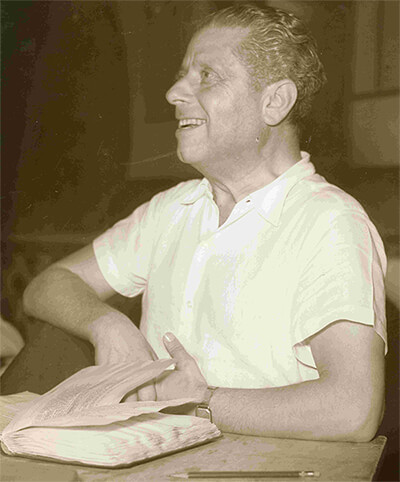Who is Max Reinhardt?

Max Reinhardt Finding Aids
The Max Reinhardt collection covers major aspects of the life and career of Austrian-born theatrical director and producer Max Reinhardt (1873-1943).
Max Reinhardt Collection Finding Aid
Max Reinhardt Collection Online Finding Aid (ArchivesSpace)
Finding Aid Addendum: Series V: Criticism
Finding Aid Addendum: Series VI: Legal/Business
Digital Collections
Max Reinhardt Collection Photographs: digitized photographs of actors, actresses, set designs, costumes, theaters, and more. This collection is also available on New York Hertitage.
Max Reinhardt Collection Promptbooks: promptbooks used by Max Reinhardt and others for various productions.
What is a prompt book?
The prompt book is a master copy of the production script and contains a wealth of
instructions and information alongside the basic text of the play. As well as the
actors’ lines, you will often see cues for music, movement, light, and many other
aspects of stage business. It may also contain sketches of staging or costumes.
Why are his important?
Reinhardt’s directorial prompt books reflect the ways in which he made plays by major
playwrights his own. The prompt books contain notations denoting changes in the script,
actor moves and technical cues, instructions on how sound, props and scenery were
used, and stage drawings. They help us to reconstruct Reinhardt’s techniques and directions
in productions.
Related Links
The Life and Times of Theater Director Max Reinhardt: a timeline showing the significant events and accomplishments in the life of Max Reinhardt.
The Theaters of Max Reinhardt: images and descriptions of theaters associated with Max Reinhardt.
Related Collections
Don Boros Russian Theatre Collection
Meyer Collection of Concert and Theater Programs
Gottfried Reinhardt Papers
Theatre History Collection
Fritz Halbers Papers
Berthold Held photographs
Tilly Losch papers and artworks
Peter Wexler Collection